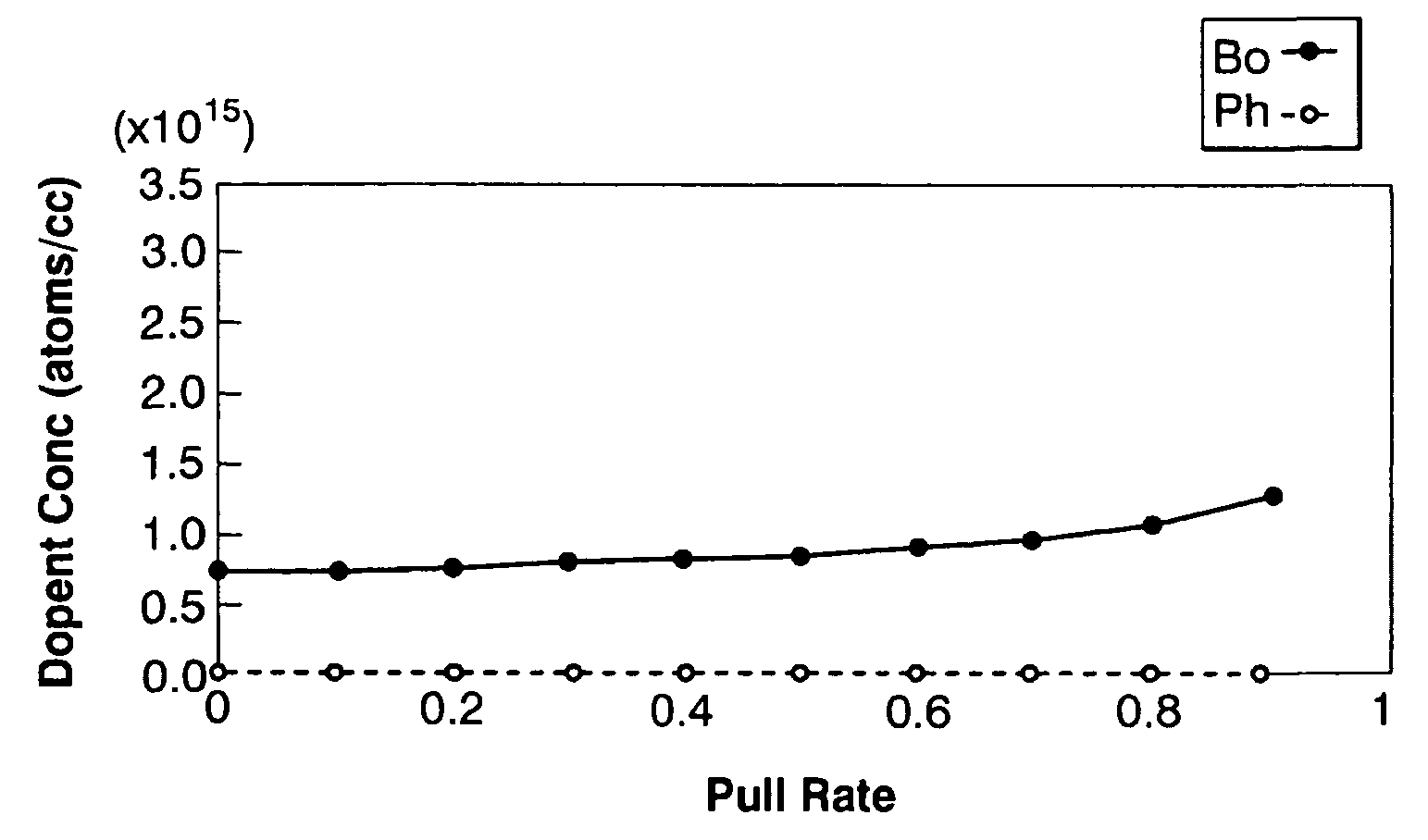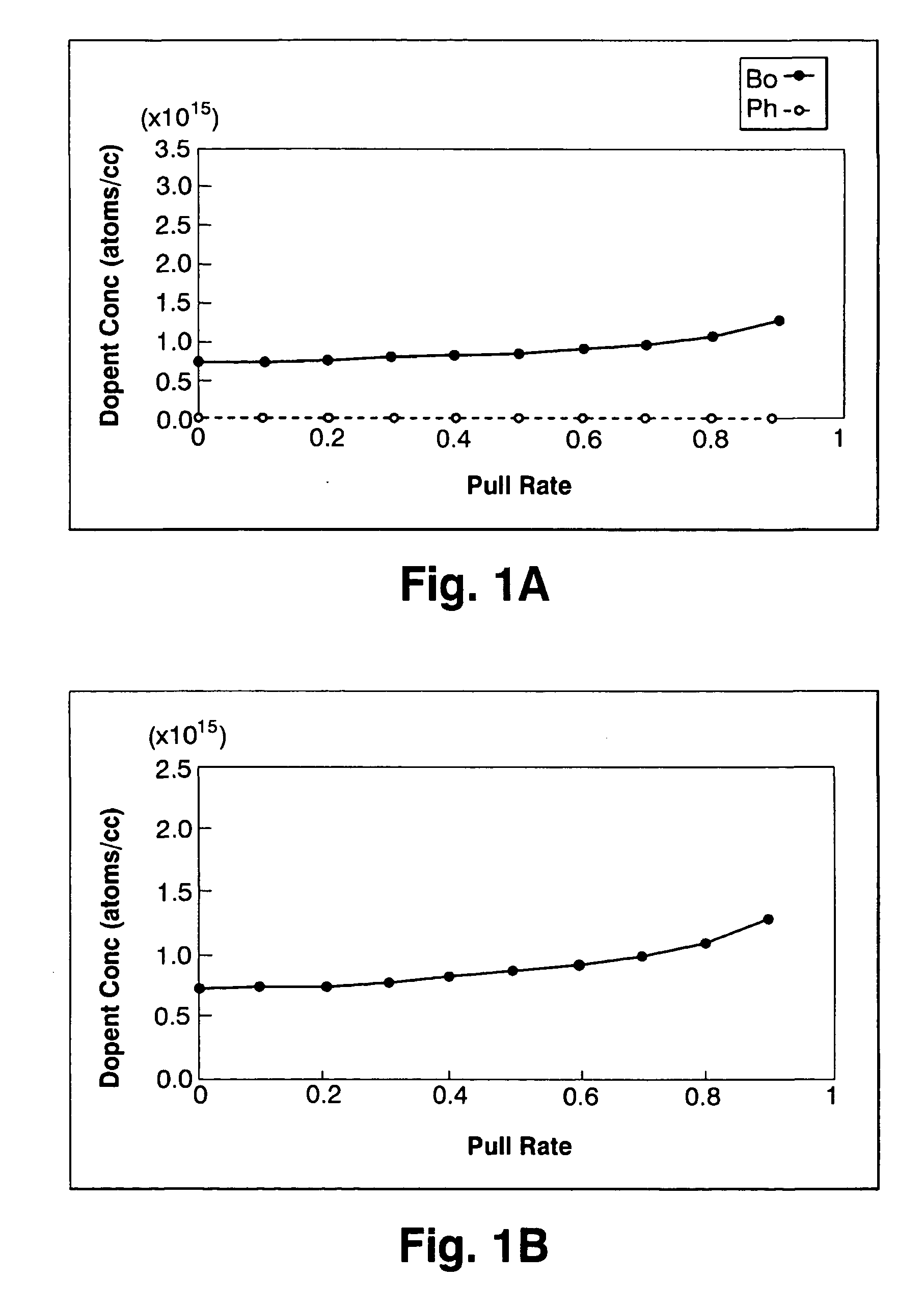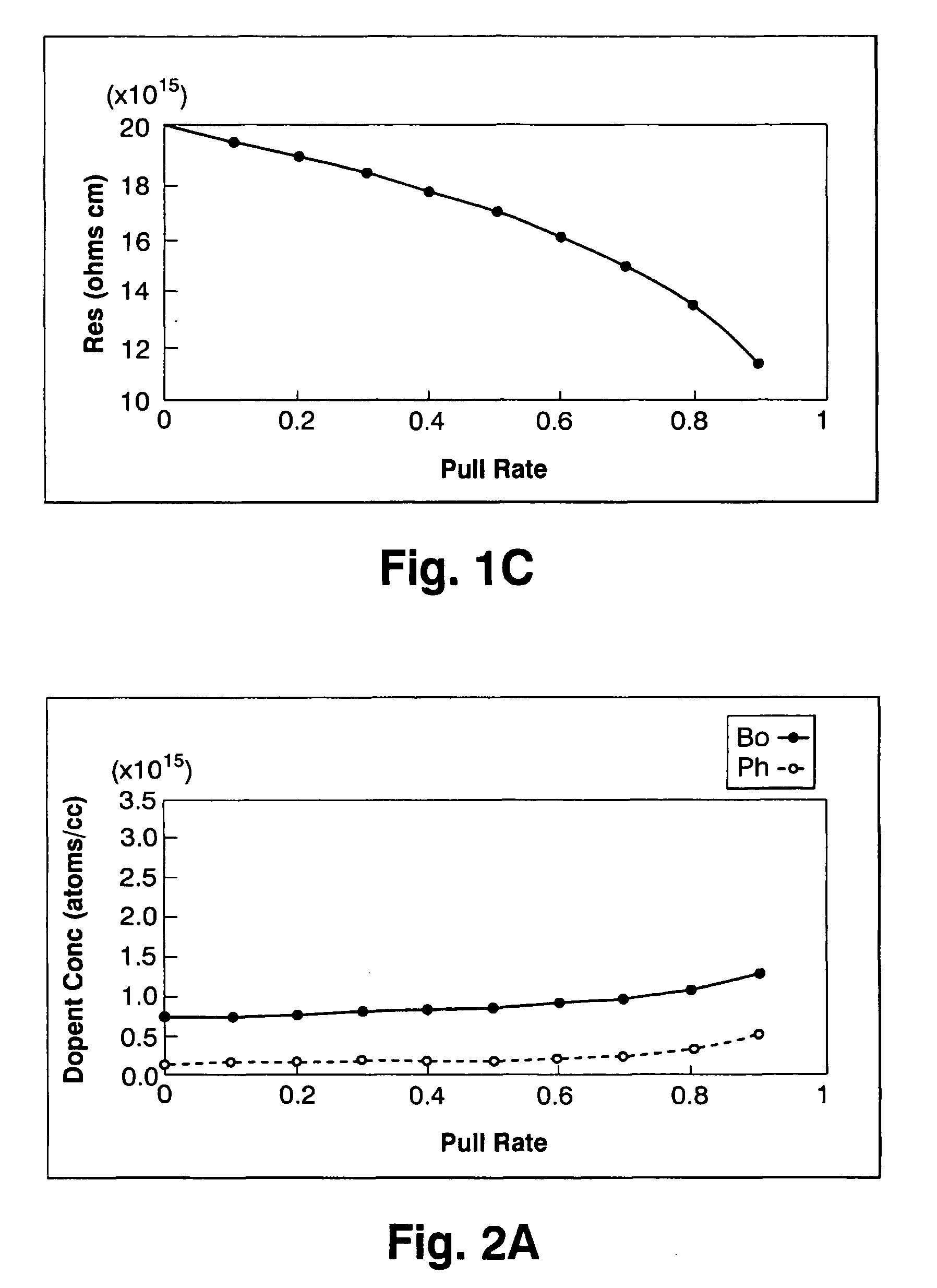Silicon single crystal and method for growing silicon single crystal
a single crystal, silicon technology, applied in the direction of polycrystalline material growth, silicon compounds, under protective fluid, etc., can solve the problems of complex process, difficult to ensure the resistivity value of ingots, and complex methods that must be employed for actual implementation of processes, so as to achieve the effect of increasing the segregation coefficient and increasing the yield
- Summary
- Abstract
- Description
- Claims
- Application Information
AI Technical Summary
Benefits of technology
Problems solved by technology
Method used
Image
Examples
embodiments
COMPARATIVE EXAMPLE 1
[0023] A total of 140 kg of silicon was melted and growth was conducted by adding a dopant comprising boron in an equivalent amount of 5.77×1019 atoms / cc with the object of growing a p-type 8-inch single crystal with a resistivity of 15˜20 Ωcm.
[0024] The concentrations of boron and phosphorus in silicon in each pull rate section are shown in FIG. 1A, the difference in the concentration between boron and phosphorus is shown in FIG. 1B, and the resistivity value in each pull rate section is shown in FIG. 1C. The results obtained show that the desired resistivity value could be obtained only in 70% of the entire body. Furthermore, the segregation coefficient of boron with respect to silicon was 0.75.
embodiment 1
[0026] When melting 140 kg of silicon and growing a p-type 8-inch single crystal with a resistivity of 15˜20 Ωcm in a similar way as in Comparative Example 1, pulling was conducted upon adding phosphorus at 31% of the absolute boron concentration (atoms / cc) in the initial solution.
[0027] As a result, as shown by the concentrations of boron and phosphorus, the difference in the concentration between boron and phosphorus, and the resistivity value in FIG. 2, the desired resistivity value could be obtained in 90% of the entire body. Furthermore, the segregation coefficient of boron in silicon containing no phosphorus was 0.75, but when 31% phosphorus was added, the segregation coefficient became 0.85.
PUM
| Property | Measurement | Unit |
|---|---|---|
| resistivity | aaaaa | aaaaa |
| resistivity | aaaaa | aaaaa |
| concentration | aaaaa | aaaaa |
Abstract
Description
Claims
Application Information
 Login to View More
Login to View More - R&D
- Intellectual Property
- Life Sciences
- Materials
- Tech Scout
- Unparalleled Data Quality
- Higher Quality Content
- 60% Fewer Hallucinations
Browse by: Latest US Patents, China's latest patents, Technical Efficacy Thesaurus, Application Domain, Technology Topic, Popular Technical Reports.
© 2025 PatSnap. All rights reserved.Legal|Privacy policy|Modern Slavery Act Transparency Statement|Sitemap|About US| Contact US: help@patsnap.com



